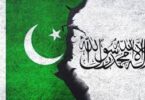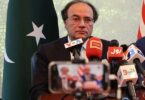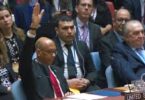Speaking at special transmission of a Peshawar based private TV channel, Khyber Pukhtunkhwa Information Minister Shaukat Yousazai disclosed that provincial government has forwarded its recommendations to the Federal Government as PTI government at the center is keen to enhance the standard of education and make it compatible with requirements of 21st century. He rightly pointed out inefficiencies in the curricula of education at all levels. In his critique of excessive tuition fee of private educational institutions, the minister said that it is time to stop the practice of hefty amount of profit earning in the name of promoting education.
On the rational of uniform curriculum, federal minister for education Shafqat Nehmood had said that elementary and secondary education was a provincial subject and in 2010 higher education was also devolved to provinces under the relevant provisions of 18th Amendment to the constitution. In other words he was conveying a subtle message that federal government alone does not have much say in deciding the contents of uniform curricula. Even before the enactment of this amendment the federal government had miserably failed to implement curriculum reforms in line with contemporary requirements in the government of General Musharraf when one man say was the order of day. The PML-Q government in Punjab and Mutahida Majlis Amal government in Khyber Pukhtunkhwa torpedoed the draft of education sector reforms of the federal government. It would be a miracle if the incumbent federal government succeeds to develop consensus on uniform curriculum.
The truth is that although previous PTI government updated the contents of textbooks at the primary and secondary schools level. But the compliers engaged by the Textbook Board, who print their names as authors and editors on the title pages, include the contents in the textbooks from the pdf files available on the internet through cut-copy-past procedure. They had never taken pains to generate original content like Indian authors by voraciously reading hard copies of useful books of foreign authors. Likewise, the proof readers and reviewers do not read the cut-copy-paste version of text books for detecting errors and refinement of the textbook.
The situation of higher education in public sector universities is worse due to dearth of reference books and lack of subscription of topnotch international journals. The minister has deplored the charging of inflated tuition fee by the management of private educational institutions, ignoring the fact tuition fee of BS, MS and M Phil programmes have witnessed four time times increase over the past seven years. Acquisition of Higher education has become almost unaffordable for the students who belong to lower middle class families. The recruitment on faculty positions are not made on merit and the faculty thus appointed is least bothered in imparting higher education with honesty and dedication. The appointments that were made in the universities of Sawbi under the political pressure of former speaker of Provincial Assembly are the talk of the town. If cronyism is promoted in educational institutions then how can the standard of education be enhanced and favourable environment for knowledge economy can be created? The Prime Minister is keen to adopt the Malaysian model of knowledge economy but the leaders of his party are moving in the opposite direction by violating merit.






